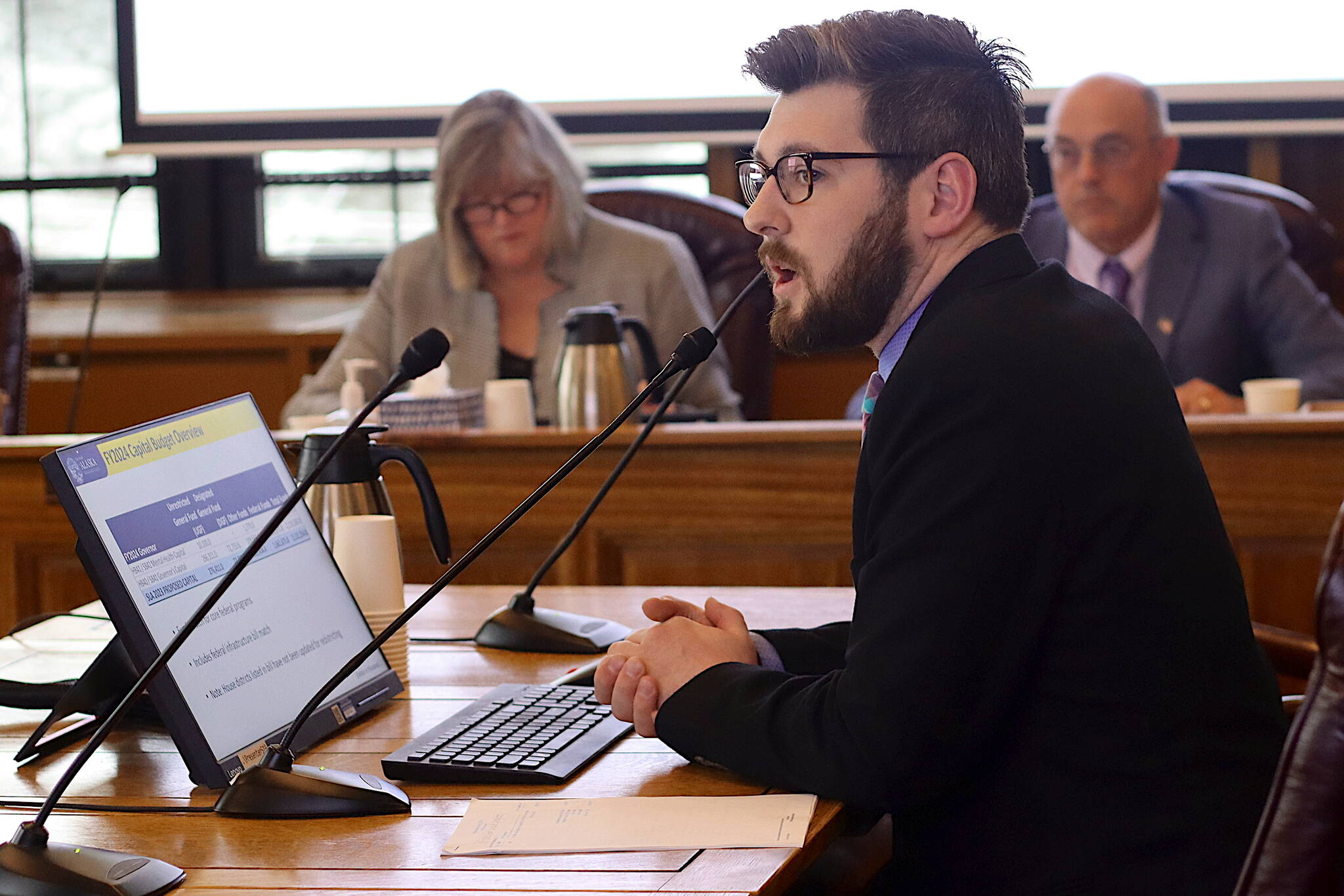Neil Steininger is departing as director of the state Office of Management and Budget under Gov. Mike Dunleavy, the latest in a series of staffing changes that have generated controversy in recent months, according to a senior state legislator and media reports.
Steininger and Dunleavy did not respond to multiple requests for comment Friday about the reason for and timing of the departure, which was was reported by the Alaska Landmine and Must Read Alaska.
Sen. Bert Stedman, a Sitka Republican who co-chairs the Senate Finance Committee, said in an interview Friday he had heard about Steininger’s departure, but not the circumstances involved. Stedman, who was among the lawmakers working most closely with Steininger and other administration budget officials, described him as a skilled and loyal director.
“He did an excellent job and he toed the company line for his boss, whether it added up or not,” Stedman said.
Steininger was appointed as OMB director in January of 2020 to replace Donna Arduin, a nationally prominent slash-and-burn budget cutter who became a focal point of attacks during Dunleavy’s first year in office. The appointment of Steininger, who had five years of previous budget experience with the state, was among a number of actions by Dunleavy after his initial years seen by lawmakers and analysts as signifying a less partisan and confrontational approach leading up to the governor’s reelection to a second term last November.
But since his reelection Dunleavy has made numerous staffing appointments and changes that have provoked outraged responses.
Among those moves was nominating Bethany Marcum to the University of Alaska Board of Regents, who as executive director of the Alaska Policy Forum supported a budget by Dunleavy in 2019 that cut the university system’s funding by 40%. Her nomination was rejected by the Alaska Legislature — the only appointee of nearly 80 not to be confirmed.
Dunleavy then announced a recess appointment to the regents for Tuckerman Babcock, who as the governor’s first chief of staff demanded about 800 at-will state employee sign loyalty pledges — with a federal judge subsequently ruling the pledges and resulting firing of employees illegal. Babcock resigned from the board in early August, after serving only two months and before the Legislature could vote on his confirmation.
Most recently Dunleavy named Mike Porcaro, a talk radio host and longtime GOP advertising consultant whose firm has worked for the governor’s campaigns, as one of two commissioners overseeing the Juneau-based Commercial Fisheries Entry Commission. Porcaro has never been a commercial fisherman and didn’t ask for the job that pays $136,000 for full time work, although he plans to work remotely from Anchorage while continuing his other jobs, according to the Alaska Beacon.
Some Alaska political observers have speculated previously at least some of the governor’s recent political actions — such as advocating for transgender bans in sports and other school-related matters — are motivated by the hope of serving in a Republican administration if the party prevails in the 2024 U.S. presidential election. Dunleavy endorsed former President Donald Trump earlier this week, making him among the first three Republican governors to do so, according to Politico.
Stedman, when asked how Steininger’s departure and other actions by Dunleavy might affect the budget process during the next year and beyond, answered with the presumption the governor intends to finish his term.
“He has three years left in his gubernatorial run,” Stedman said. “I highly suggest you get a competent OMB director. Donna Arduin isn’t one.”
Arduin did return to the Alaska State Capitol during the past session as a policy advisor state Rep. Ben Carpenter, a Nikiski Republican who chaired the House Ways and Means Committee. The committee spent most of the session hearing various proposals related to longer-term fiscal policy beyond the annual budget cycle.
The governor and Senate majority differed sharply on budget goals during the past legislative session, with Dunleavy proposing a budget that included an initial Permanent Fund Dividend of nearly $3,900, no increase in per-pupil education spending and a deficit of hundreds of millions of dollars. The Senate countered with a budget that contained a $1,300 PFD, a $680 per-student increase in school funding and a small surplus.
The Senate’s version largely prevailed following a special session in May that lasted one day. However, Dunleavy cut half of the education increase among other line-item vetoes when he signed the budget in June.
• Contact Mark Sabbatini at mark.sabbatini@juneauempire.com or (907) 957-2306.

